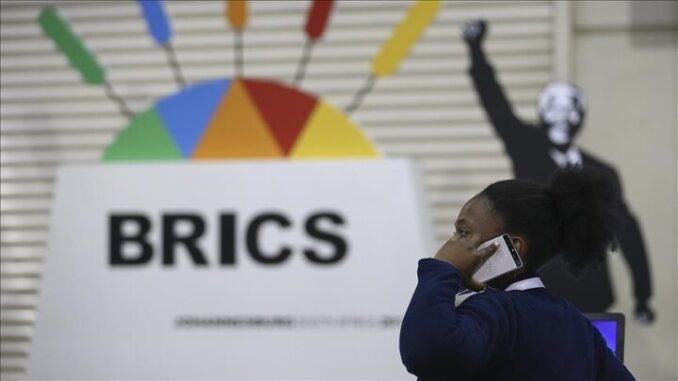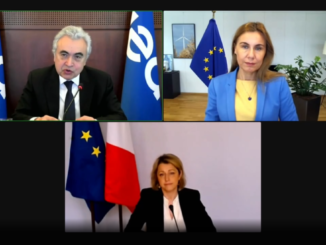
The measure would be in line with the group’s plans to cut reliance on Western currencies and financial mechanisms
The BRICS group of emerging economies plans to create a payment system based on digital technologies, Yury Ushakov, a senior foreign policy aide to Russian President Vladimir Putin, has told TASS in an interview published on Tuesday.
According to Ushakov, the system would be “outside of politics” and would not depend on national agendas or the fiat currencies of countries around the globe.
“We believe that an important goal for the future is the creation within the BRICS framework of an independent settlement payment system that would be based on the most modern technologies, such as digital currencies and blockchain,” Ushakov stated. “It would be comfortable for any state, person and business, and would not require significant costs.” The presidential aide did not specify the details or the time frame for the development of the new system.
Ushakov noted that BRICS intends to focus in 2024 on increasing its role in international monetary and financial systems. Russia currently holds the rotating chairmanship of the group, and Moscow has repeatedly stressed that its priority is to increase payments in national currencies within the bloc.
“We will continue to work on the development of the Contingent Reserve Arrangement (CRA), primarily in terms of the use of currencies alternative to the US dollar,” Ushakov stated. The BRICS CRA is essentially a common reserve of currencies available to members in the event of a liquidity crisis, designed to provide them with the means to trade smoothly even under intense pressure, such as international sanctions.
BRICS, which previously comprised Brazil, Russia, India, China, and South Africa, saw a major expansion this year when Saudi Arabia, Iran, Ethiopia, Egypt, and the United Arab Emirates joined in January. Over the past year, BRICS countries have rapidly shifted away from using the dollar and the euro in settlements within the bloc. Instead, they have boosted the use of national currencies, especially as Ukraine-related Western sanctions have made it near impossible for Russia to make cross-border transactions using Western money and payment systems such as SWIFT. The share of national currencies in Russia’s settlements with BRICS countries jumped to 85% at the end of 2023, up from just 26% two years ago.



